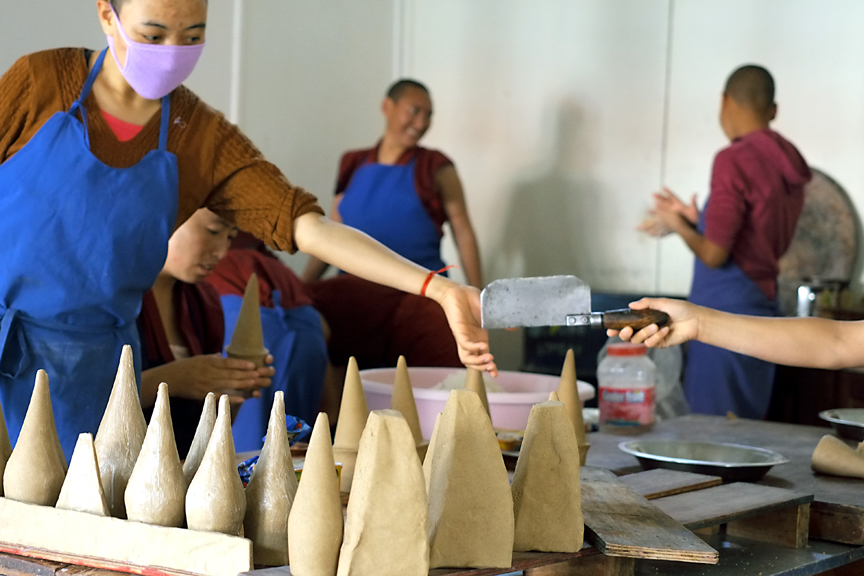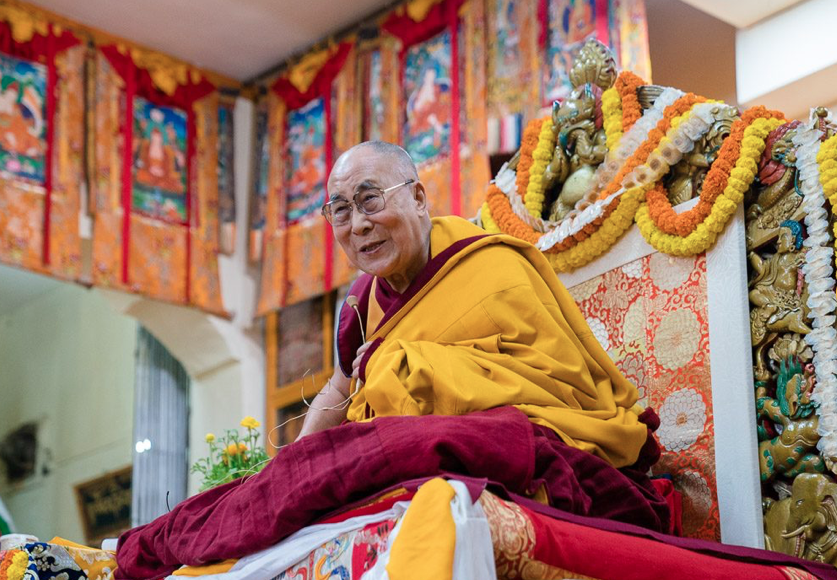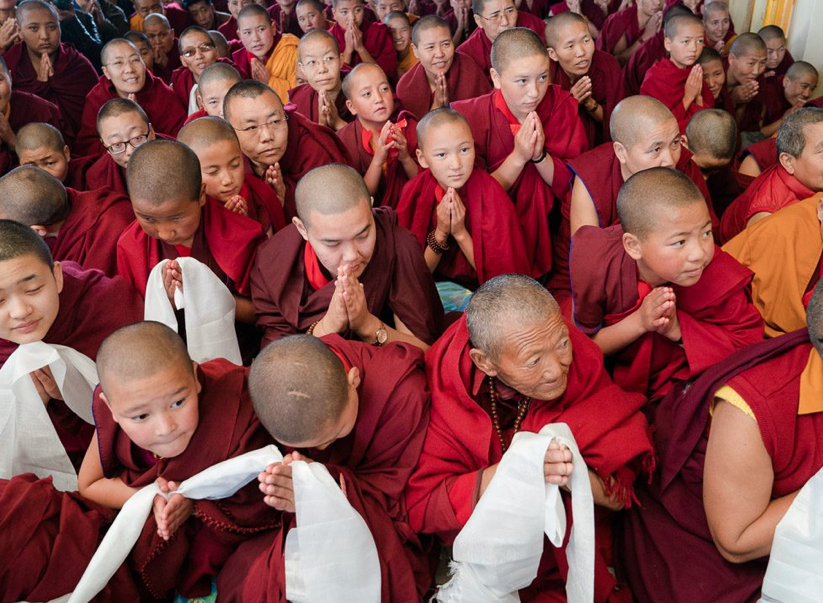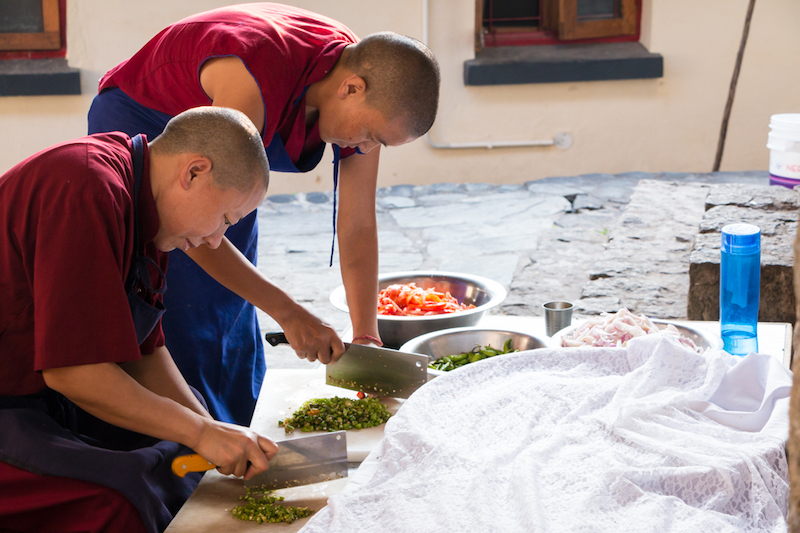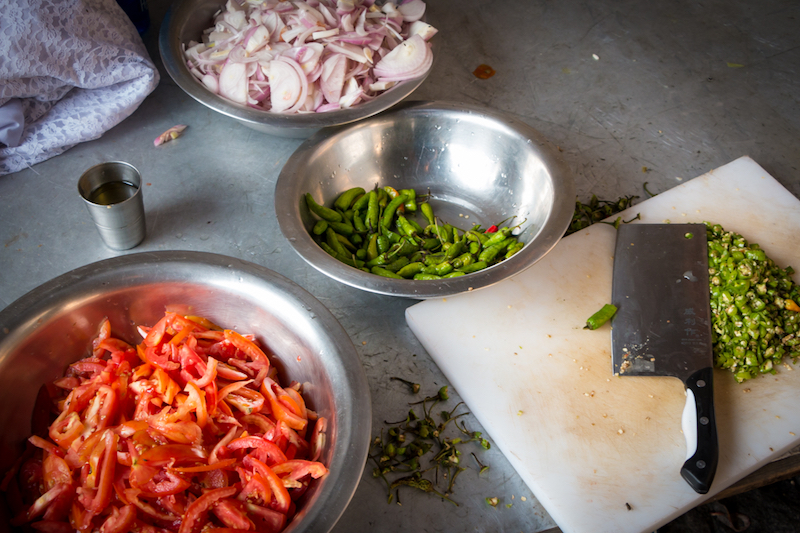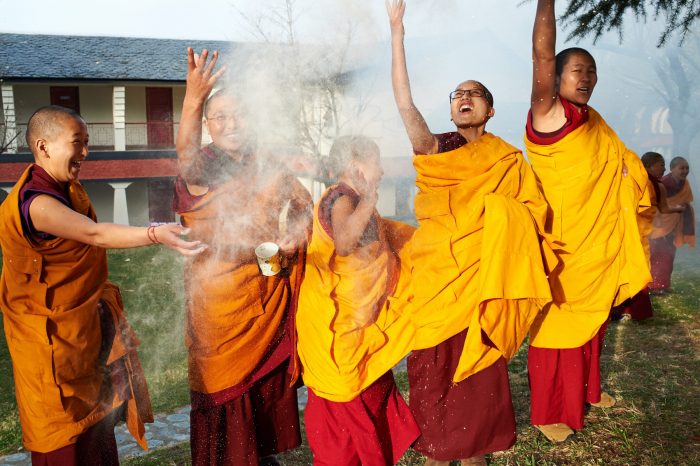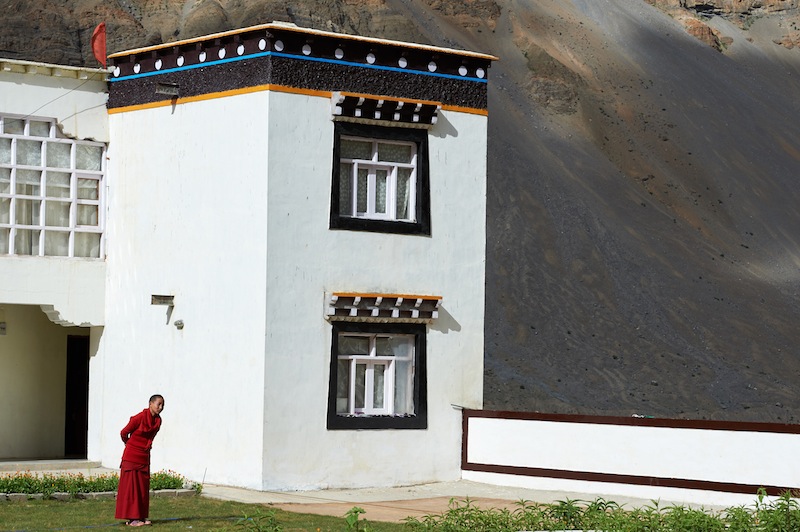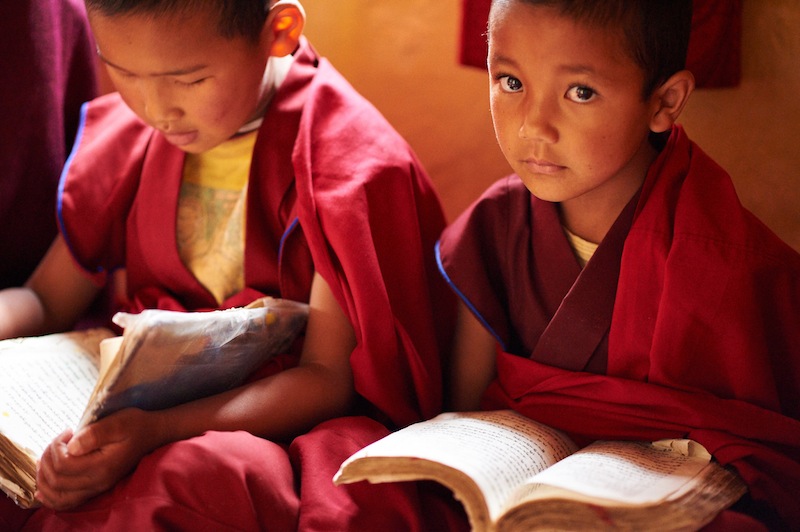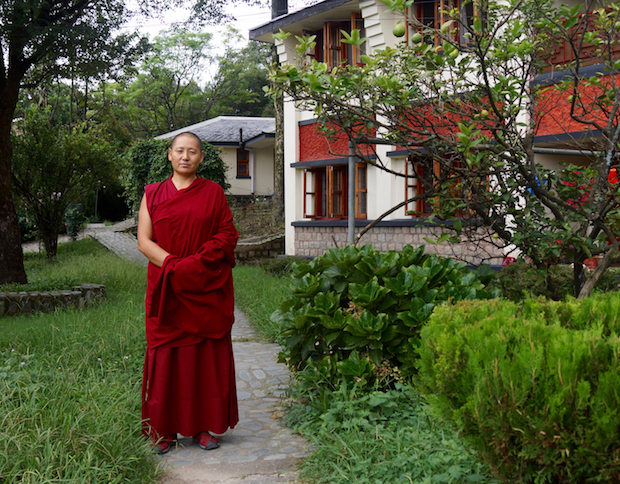In northern India, where all the nunneries supported by the Tibetan Nuns Project are located, the winter can be harsh and long.
This is particularly true for the two remotest nunneries we support, Sherab Choeling Nunnery in Spiti and Dorjee Zong Nunnery in Zanskar, both high in the Indian Himalayas.
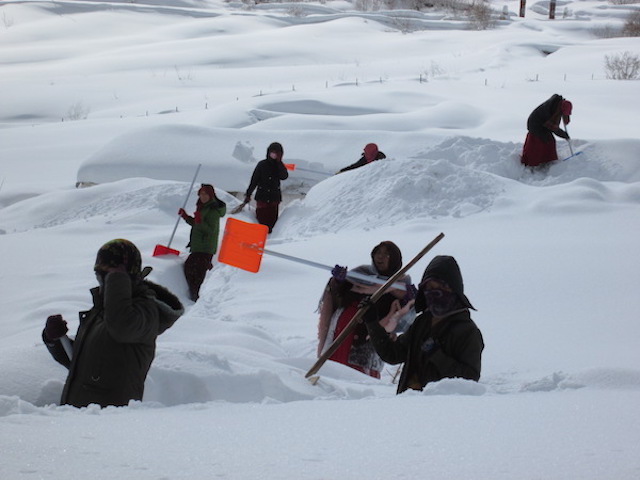
Tibetan Buddhist nuns at Sherab Choeling Nunnery in the Spiti Valley shovel deep snow to clear a path around the nunnery.
Although the nuns at Sherab Choeling nunnery are used to long, hard winters and having to shovel a lot of snow and stock up on supplies, some winters pose extra challenges for them.
For example, during the winter of 2014-2015, the weather in the remote Spiti Valley was so severe that the nuns at Sherab Choeling out of cooking gas. For over two months they had to rely solely on firewood to cook.
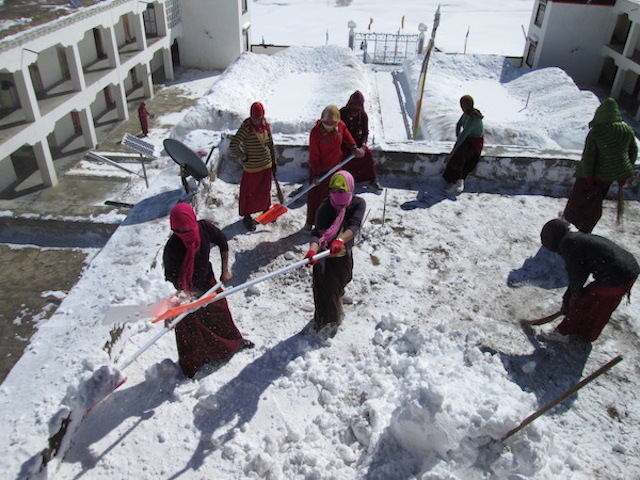
Nuns at Sherab Choeling Nunnery in the remote Spiti Valley of northern India clear snow from the roof of the nunnery.
The heavy snowfalls in the area that winter meant that the nuns were unable to get supplies and all the local villages were cut off. In order to fetch water from the nearby village, the nuns had to clear a path through waist-deep snow. Thankfully the nuns had enough stores of vegetables and tsampa (roasted barley flour) to last them through the winter months.
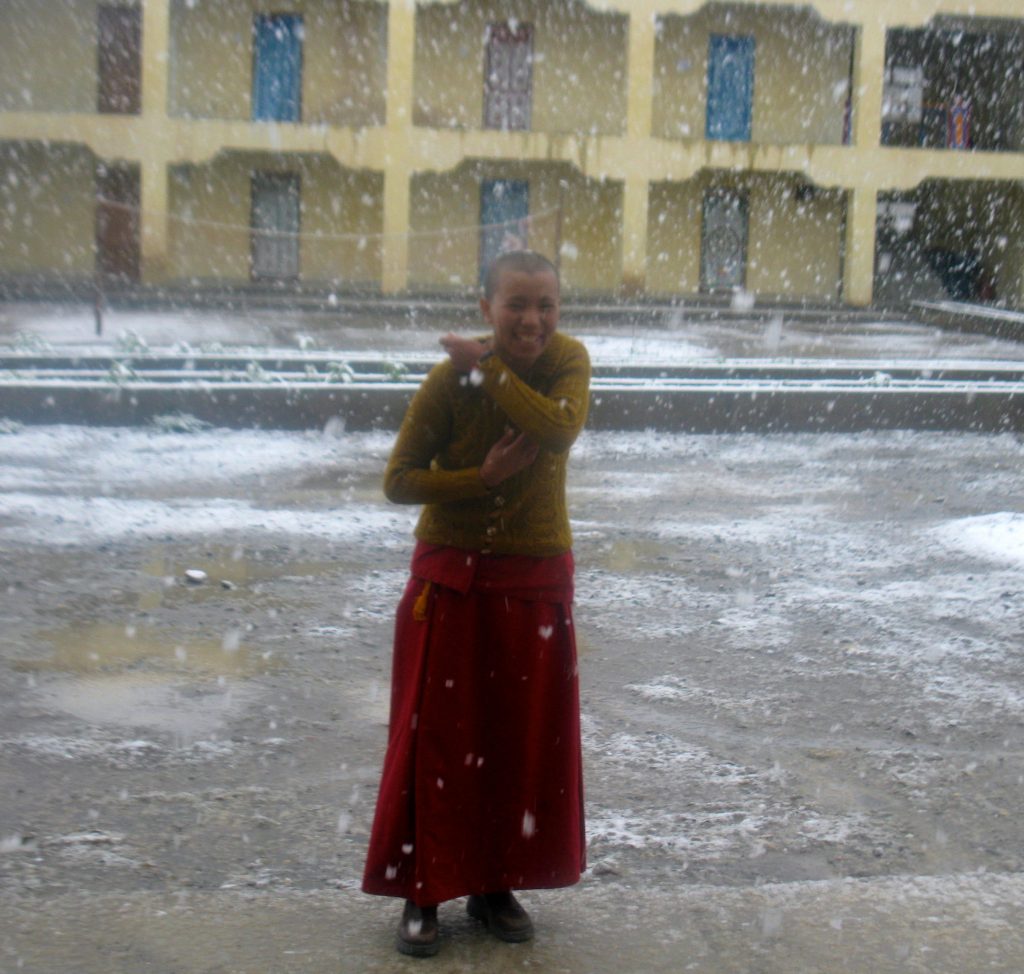
Snowfall at Sherab Choeling Nunnery in the Indian Himalayas.
The nuns at Sherab Choeling work hard to prepare for winter, when the region is cut off from neighboring villages. They stock up their daily supplies well before the onset of cold weather. During the summer months, the nuns grow food to store for the winter months. The people in a nearby village have given the nuns a plot of land where they now grow spinach, beans, and potatoes. The head nun also donated her share of a field to the nunnery, so the nuns are able to grow peas and wheat.
During the coldest months, the nuns hold their classes, prayers, and meetings in the kitchen because it is warmer and helps to save wood.

The simple kitchen at Sherab Choeling Nunnery.
Of course none of the nunneries are heated, not even the large ones like Dolma Ling and Shugsep. There is simply no way to afford heating. In the winter, the nuns will try to sit outside in the sun because the buildings are cold. Tasks such as washing their robes in the stream and drying them outdoors become even more challenging during the cold months.
Although the nuns have difficult living conditions, the quality of their food, housing, and shelter has vastly improved in the past 30 years since the Tibetan Nuns Project was founded. In 2016, generous donors helped with a water project at Dolma Ling Nunnery, part of which was to build a hot-water boiler. The boiler is conveniently located adjacent to the dining hall where nuns are able to fill their thermoses and take them to their rooms.
“Hot water has always been a struggle,” says Co-Director Dr. Betsy Napper. “We were able to put in solar hot water and make bath houses for both Dolma Ling Nunnery and Shugsep Nunnery so that the nuns have an option of bathing with hot water. We also got hot water into the kitchens, using solar panels at both nunneries.”
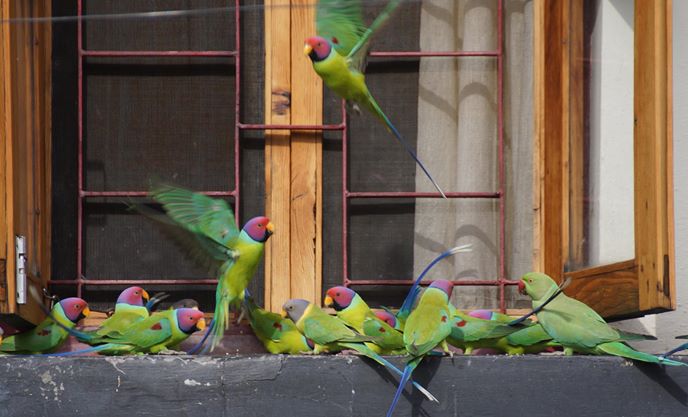
Compassion in action. During the cold winter months, the nuns at Dolma Ling will sometimes feed the wild plum-headed parakeets. This photo was taken by one of the nuns and was featured in our 2015 Tibetan Nuns Project calendar.
Winter months are a quieter time in the nunneries because some nuns travel to see their families or attend teachings elsewhere, such as His Holiness the Dalai Lama’s teachings in south India last winter or his teachings in Bodhgaya this winter. After Losar (Tibetan New Year), all the nuns return and resume their studies.
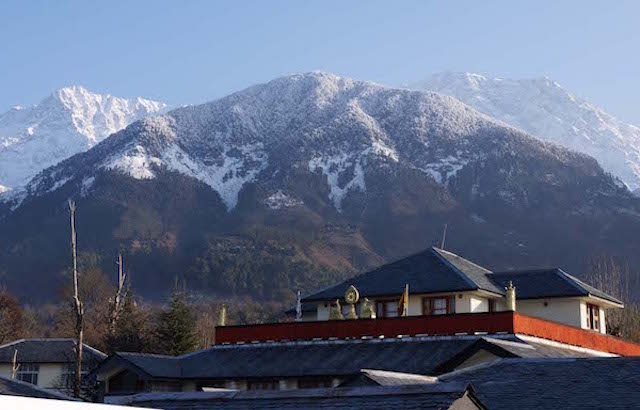
The snow mountains above Dolma Ling Nunnery. The nunnery is located on the foothills of the Dhauladhar range (literally the White Range) of the Indian Himalayas.
We send a warm “Tashi Delek” and express our heartfelt thanks to all our sponsors and donors – new and old – for your kindness and generosity. You are the truly the heart of our work. To learn how you can sponsor a nun, visit our sponsorship page.
